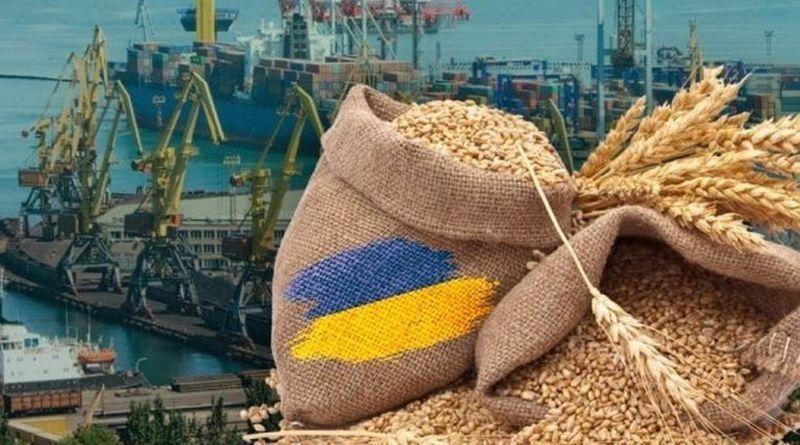In the last week, Ukrainian-Polish tensions escalated after Poland refused to lift its ban on Ukrainian crop imports. The Polish and Ukrainian presidents slammed each other in the UN, and the Polish Prime Minister announced that Poland would limit the supply of weapons to Ukraine only to already existing contracts.
Ukraine insists Poland should adhere to international law regarding trade and lift its ban on Ukrainian imports. Poland, in turn, fears cheap Ukrainian crops will shake its dominant position on the EU food market and decrease local grain prices.
The dispute has far-reaching consequences: right now, Ukraine's exports help its wartime economy, but the issue should be resolved overall for Ukraine's smooth integration into the EU. Here is how the countries can reach a resolution.
Tariffs lifted amid Russian invasion cause discord within EU
Following the Russian 2022 full-scale attack on Ukraine, the European Commission lifted all quotas and tariffs for Ukrainian exports to the EU to support the Ukrainian economy during the war. Previously, quotas and tariffs were applied to Ukraine in accordance with the Association Agreement between Ukraine and the EU, gradually decreasing year by year.
In April 2023, after Ukrainian exports to the EU increased, Bulgaria, Hungary, Poland, Romania, and Slovakia introduced a unilateral ban on the import of wheat, corn, rapeseed, and sunflower seeds from Ukraine. Then, on 2 May 2023, the European Commission approved the ban locally for those five countries. It lasted until 15 September 2023, when the Commission said temporary distortions were removed in the five EU markets, and Ukrainian exports could go there again.
However, Poland, Slovakia, and Hungary said their national embargo would stay. Ukraine sued the countries at the World Trade Organization (WTO). Later, on 21 September 2023, Slovakia lifted the embargo, saying it reached a compromise agreement with Ukraine. The European Commission has slammed Poland and Hungary for their unilateral decision to ban grain and other food imports from Ukraine. A European Commission spokesperson stated that "trade policy is of EU exclusive competence and, therefore, unilateral actions are not acceptable."
Poland's decision to keep the embargo spun out of control when a row erupted between Polish and Ukrainian politicians.
During a press conference in New York on 19 September 2023, the president of Poland, Andrzej Duda, compared Ukraine to a drowning man grasping at straws who can harm the rescuer. The same day, President of Ukraine Volodymyr Zelenskyy said that "some in Europe are playing solidarity in political theater" by turning the grain supply into a thriller, in fact, helping to "prepare the stage for the Moscow actor."
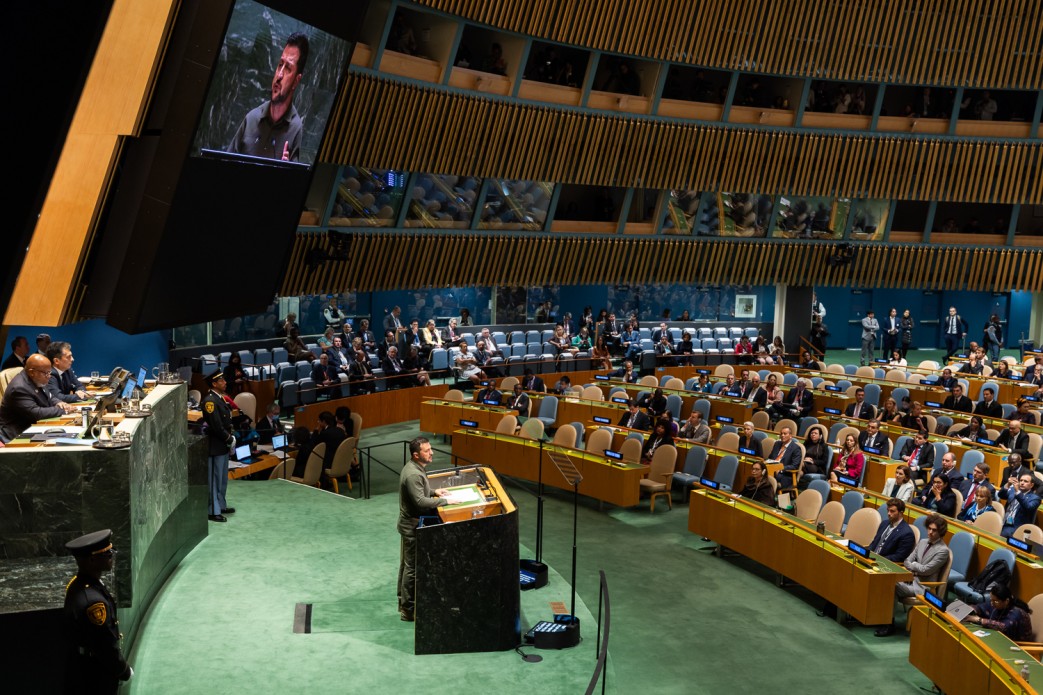
The statements sparked outrage both in Ukraine and in Poland. Ukrainian ambassador to Poland Vasyl Zvarych was summoned to the Ministry of Foreign Affairs of Poland while Ukraine's Ministry of Foreign Affairs "called on our Polish friends to put aside their emotions."
In another scandalous statement, Polish Prime Minister Mateusz Morawiecki said on 20 September that Poland is no longer supplying Ukraine with weapons because it is focused on rearming its own army. However, Poland later backtracked on the statement, with President Duda clarifying that contracts that Poland signed with Ukraine – for example, on the supply of Krab self-propelled artillery installations – would be fulfilled.
According to the most recent statements, on 21 September 2023, Ukrainian and Polish agriculture ministers agreed "to find a solution that considers the interests of both countries," which marks a slight turn towards more constructive talks.
The next negotiations are expected to take place in the coming days, during which the questions prepared by both sides will be discussed. The Polish side said they were "happy to discuss the grain issue," but the exported grain should not be sold in Poland, but continue to the countries where it used to go before the war.
Is it all only about grain?
No. The essence of the row has wider repercussions regarding the general policy toward Ukraine's EU membership and integration of the Ukrainian economy into the EU market.
On 22 September 2023, Bloomberg reported that The European Commission will recommend launching Ukraine's accession process to the EU. However, just two days before the report, Polish Minister of Agriculture Robert Telus said that Poland "will certainly not agree" to Ukraine joining the EU "if we do not build the tools today."
He referred to the issue of grain imports from Ukraine, saying that the EU and Poland, in particular, must prepare to live with Ukrainian products first.
As Telus emphasized, "on the basis that exists at the moment, Polish agriculture will never win against Ukrainian agriculture. There are several hundred thousand farms there. This is a completely different agriculture, that's why our position is so strong."
He didn't specify what tools should be built, saying in another conversation with the press that Ukrainian grain should not stay in Poland but be transited through the country elsewhere.
Telus' words can be interpreted differently, but one thing is clear: some politicians in Poland began stating that Ukraine's membership in the EU may increase competition in several areas of the union's economy where Poland dominates.
Agriculture may be the most vulnerable field: Poland is a large agricultural producer like Ukraine, with 12% of the population employed in agriculture (14% are in Ukraine). After Ukraine enters the EU, Ukrainian goods, including food, will move freely inside the union, and there will be no tools to stop them.
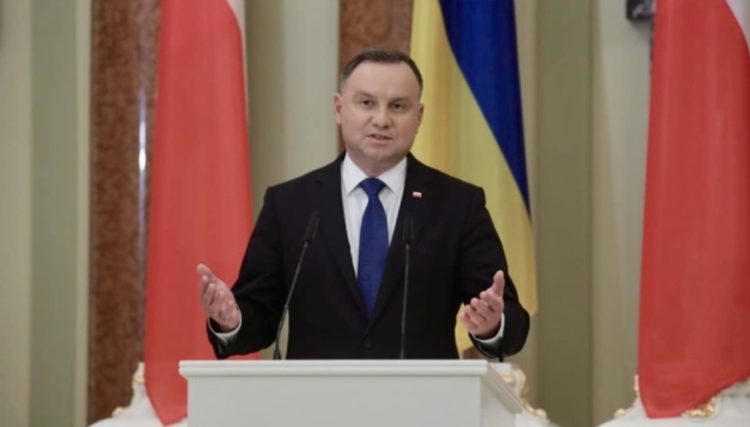
Polish arguments: "protecting farmers" and accusations of ingratitude
The main Polish argument says that Polish grain is more expensive than Ukrainian grain due to the compliance with the EU norms and less extensive way of farming. In Ukraine, instead, companies that grow grain and sunflowers are much bigger than similar Polish ones and use a cheaper Ukrainian workforce.
After cheap Ukrainian grain flooded the Polish market, the traders were reluctant to buy domestically grown crops at higher prices. That is why Polish politicians constantly repeat the message about the need to "protect Polish farmers."
They also said, as President Duda emphasized on 19 September, that Poland did not close its borders to Ukrainian grain entirely but established transport corridors, which were agreed with Ukraine. According to him, thanks to these corridors, twice as much grain is transported through Poland in September 2023 than in February or March of this year, despite the embargo. However, this grain "shouldn't stay in Poland."
Poland also said that the transport infrastructure needed for grain transit in high volumes is an additional problem. This includes grain terminals, railway, and port facilities. On 4 August 2023, Poland presented in Brussels its calculations of investments necessary to increase exports of grain and other agricultural products from Ukraine through the Polish-Ukrainian border to global markets. Poland requested EUR 1 billion from the EU to expand terminals for large trucks on its border with Ukraine and the railway infrastructure.
Finally, the emotional part of the argument says that Poland is one of the key Ukrainian allies in terms of military support and provided tanks and artillery when other European states were still hesitant. Ukraine's disagreement regarding the export policy is often interpreted as neglecting previous support.
Poland was the first to come to Ukraine's rescue. As time goes by and memory fades, this thread sets the record straight on the titanic effort that Poland and its people have made to support Ukraine in the most trying moment pic.twitter.com/ZhctoEXFXy
— Daniel Szeligowski (@dszeligowski) September 22, 2023
What irritates Ukraine
Ukrainian politicians are irritated not by some losses in exports, which are relatively small, but by the policy itself, which contradicts the general direction of Ukrainian integration with the EU. From the point of view of Ukrainian politicians, if Ukraine is about to become a member state, the neighboring economies should prepare for Ukrainian integration right now and move forward rather than backward.
The Ukrainian authorities perceived Warsaw's proposal to keep the transit going while introducing a ban on imports from Ukraine as an elaboration of the future model of relations with Ukraine, where Poland will always have the decisive word on the terms of cooperation, writes Yuriy Panchenko, Ukrainian editor of European Pravda in his analysis.
"Ukrainian authorities could not agree to such a model of relations with Kyiv, after which the appeal to the WTO became inevitable," Panchenko stresses.
Why Poland's fears of Ukrainian food are exaggerated
Also, one should consider that Poland will have parliamentary elections on 15 September 2023, and the entire debate about grain is part of election campaigns and becomes exaggerated. President of the Polish Union of Entrepreneurs and Employers Cezary Kaźmierczak wrote already in May 2023 that the entire debate about Ukrainian grain is more political than economical.
Economically, cheap Ukrainian raw products are even profitable for the Polish processing industry, but few mention this, Kaźmierczak writes. Also, both the export to Poland and transit through Poland account for only 11.3% of all Ukrainian grain exports. This volume is not decisive either for Poland or for Ukraine. The only group that loses from cheap Ukrainian exports are small farmers who face the declining prices and are, at the same time, active voters.
"Ukrainian exports do not threaten large Polish agricultural companies," Kaźmierczak summarizes. "On the contrary, they are interested in working with Ukrainian raw materials – they are cheap and of good quality. There is a certain problem: it is necessary to build additional facilities for the processing of these raw materials, but I see interest in such investments in Polish business. Problems arise only with small farmers. They do not have a significant weight in the economy, but politically, they are more powerful. And the main thing is that they are loud enough, and in the pre-election period, this has additional significance."
The head of Poland's largest opposition bloc Civic Platform Donald Tusk sharply criticized the Polish government's decision to introduce unilateral restrictions on agricultural products from Ukraine, describing it as "stabbing Ukraine in the back" and an "anti-Ukrainian disgusting circus." He also criticized Zelenskyy's comment in the UN, saying that "both sides, Kyiv and Warsaw, are close to wasting what was a great opportunity for the entire region, for Poland, for Ukraine."
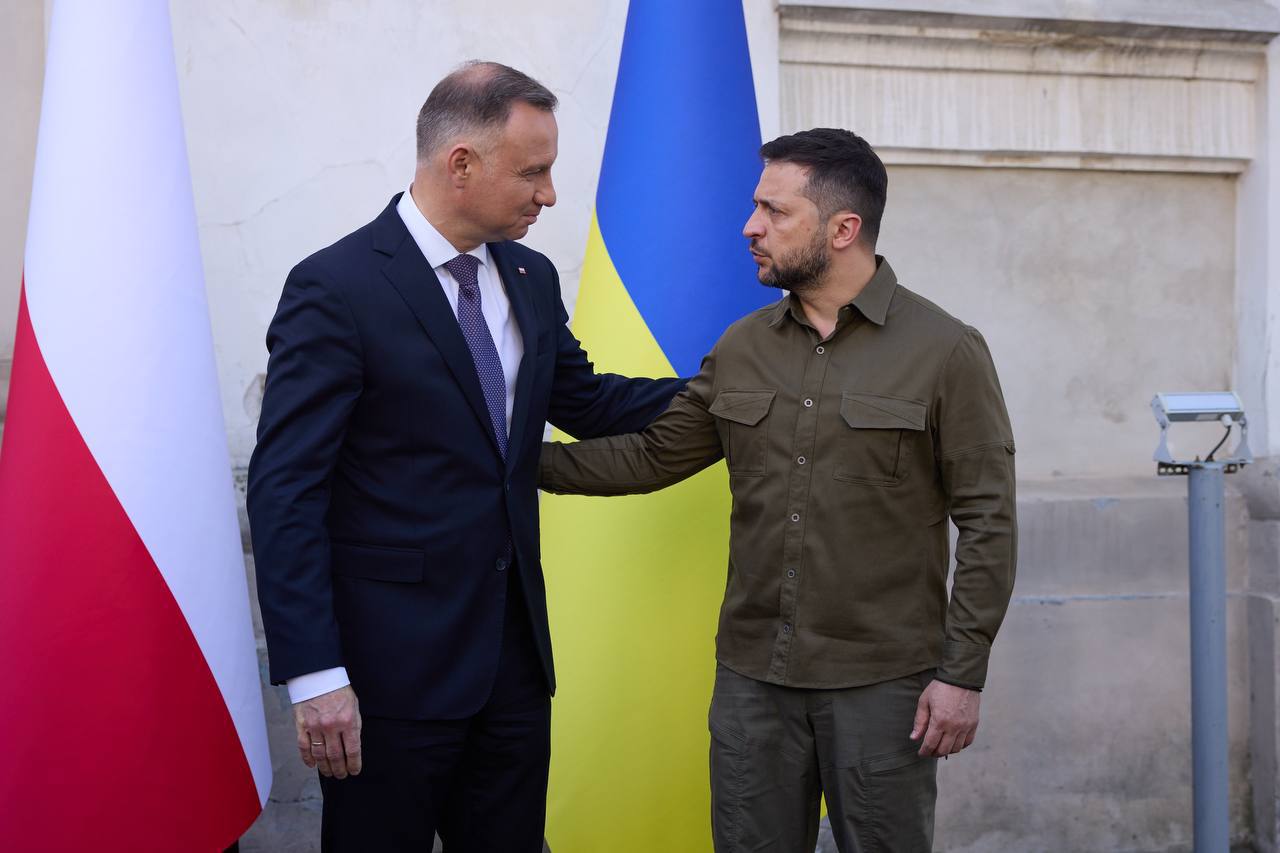
Ukrainian arguments: Polish ban violates International trade treaties
Ukrainian government claims that the Polish unilateral ban violates the Treaty on the Functioning of the EU, the Association Agreement between Ukraine and the EU, and WTO rules of international trade.
In particular, it is a direct violation of Article 35 of the Association Agreement between Ukraine and the EU, establishing the inadmissibility of introducing quantitative restrictions or bans on the import of goods. The Association Agreement defines specific quotas and tariffs for several types of goods, but they are established solely on the EU level. Individual EU states can't introduce them.
Also, the Polish decision is incompatible with EU legislation, namely with the Treaty on the Functioning of the EU (Article 28 (2) and Article 29).
These articles guarantee the free circulation of goods within the EU Customs Union (of which Poland is a part) after compliance with all necessary customs clearance formalities. Goods originating from third countries (i.e. Ukraine) receive the same status as goods of European origin when being imported into the customs territory of the EU.
This norm demonstrates the absurdity of attempts by Poland to divide the import and transit of Ukrainian goods. Legally, the option to merely "transit" grain through Poland to Germany without allowing it to be sold in Poland doesn't exist within the EU, writes Nazar Bobytskyi, an expert on international trade.
The fiercest critics say that, essentially, this Polish ban is a blackmail of both the EU and Ukraine to receive additional funding from the EU and sell Polish goods to Ukraine while not allowing Ukrainian goods.
EU ban on Ukrainian food imports violates treaties, contradicts Ukraine’s membership goal
There is also an economic argument claiming that dividing exports to Poland and transit through Poland in practice harms the latter, because many Ukrainian companies used to export grain to Polish intermediaries who would resell it further.
In May 2023, the general director of another big Ukrainian trader, UGTC Trade Ihor Vovchenko, said that his company was mostly reselling Ukrainian cereals to Polish intermediary companies, which, however, still would re-export it further. A ban on imports from Ukraine to Poland means this practice of re-exporting is closed for his company. It lost 70-80% of its export potential.
Finally, the emotional argument, expressed by the fiercest Ukrainian critics, criticizes Poland for providing aid to Ukraine by meeting its own mercantile interests at the same time.
In particular, Ukrainian refugees are not a burden for the Polish economy but a cheap workforce, contributing to the record increase in Polish GDP in 2022. Helping Ukraine, Poland at least "reimbursed" its aid by the cheap work of Ukrainians, EU funding, and new weapons from the US in exchange for some handed over to Ukraine, said Yevhen Dukhovych, honorary advisor at U-LEAD facilitating decentralization reform in Ukraine. At the same time, he thanked ordinary Poles for their care.
Ukrainian refugees: blow to Ukraine’s demography, godsend for the EU
Why Ukraine could choose a softer position to reach an effective agreement
Technically, the judiciary arguments of the Ukrainian government are right. However, one should consider that Ukraine never used to sell crops to the EU in such quantities.
The practice of lifting all quotas by the EU was an exception to support Ukrainian trade, making Ukraine a de-facto EU member in this aspect. However, the typical way of accession to the EU would be a steady decrease of quotas until their full cancellation so that EU economies wouldn't experience a sudden shock but a gradual adaptation.
Still, the EU has the full right to reinstate quotas according to the Association Agreement.
Therefore, while maintaining free trade in all other spheres, Ukraine could gradually introduce Ukrainian grain to the Polish market and transit through Poland within three or five years with the final goal of completely free trade as a future EU member. This solution is also not legally prescribed in the Association Agreement, but it could be an exception in response to lifting EU quotas.
Eventually, Ukraine proposed a similar solution, but only after filing a lawsuit to the WTO and maintaining the grain row.
A way to a "grain agreement" with Poland with the ultimate goal of Ukraine's EU membership
On 18 Monday 2023, Ukraine proposed a plan to monitor and regulate its exports to five EU member states in accordance with the mutually agreed list and volume of four crops. It is planned that permits for the export of such products will be issued only after coordination with the receiving party.
De facto, the trade of these four crops will be conducted in manual mode, "which is not perfect," as Ukrainian trade representative Taras Kachka said, but is an acceptable temporary measure to prepare EU markets for Ukrainian goods and Ukraine's EU membership. Especially given that the measure applies only to four crops and all other trade goes smoothly.
On its part, Ukraine should start fully introducing EU norms in agriculture to become an EU member. Yet, the Polish side, on its part, must adhere to the EU and international export rules that don't allow such a unilateral ban in the way it was applied and stop its blackmail, stresses Yana Okhrimenko, senior economist at the Center for Economic Strategy, who tries to balance between arguments of both sides in her article.
"The question arises about the goal of the Association Agreement between Ukraine and the European Union. If the main goal is to create the conditions necessary for Ukraine's membership in the EU, the ban on the import of Ukrainian goods clearly contradicts it… Both Ukraine and EU member states must minimize risks but not slow down the process. Otherwise, what was the point of starting?" Okhrimenko concludes.
Slovakia, Romania, and Bulgaria have already accepted the Ukrainian plan, and it makes it more likely that Poland and Hungary will eventually do the same.
Romanian Agriculture Minister Florin Barbu announced on 20 September that Romania and Ukraine will work together for a month on a plan to control Ukrainian grain exports. According to Florin Barbu, the system should come into force in a month after Romania creates a "clear import licensing procedure" to protect Romanian farmers.
"I am confident that this mechanism, proposed by the European Commission, accepted by Ukraine, and agreed upon by us in the interests of farmers, will be fully operational," Barbu said.
Slovakia agreed to the same licensing system to lift the ban, the Slovak Agriculture Ministry said on 21 September 2023.
After initial critical and even offending remarks, Ukrainian and Polish politicians demonstrated they were ready for constructive talks. On 22 September 2023, Polish President Duda said in Poznań during the Congress of Reconstruction of Ukraine, "Common Future," that "cooperation with Ukraine and its support are of a historical nature." He also said that "the grain supply is only a fragment of all Polish-Ukrainian relations. And I do not believe that it can significantly affect them under normal conditions," Duda concluded.
As if to affirm Ukraine's readiness for a constructive resolution, President Zelenskyy honored a Polish volunteer and a journalist with state awards on his return from a US and Canada trip.
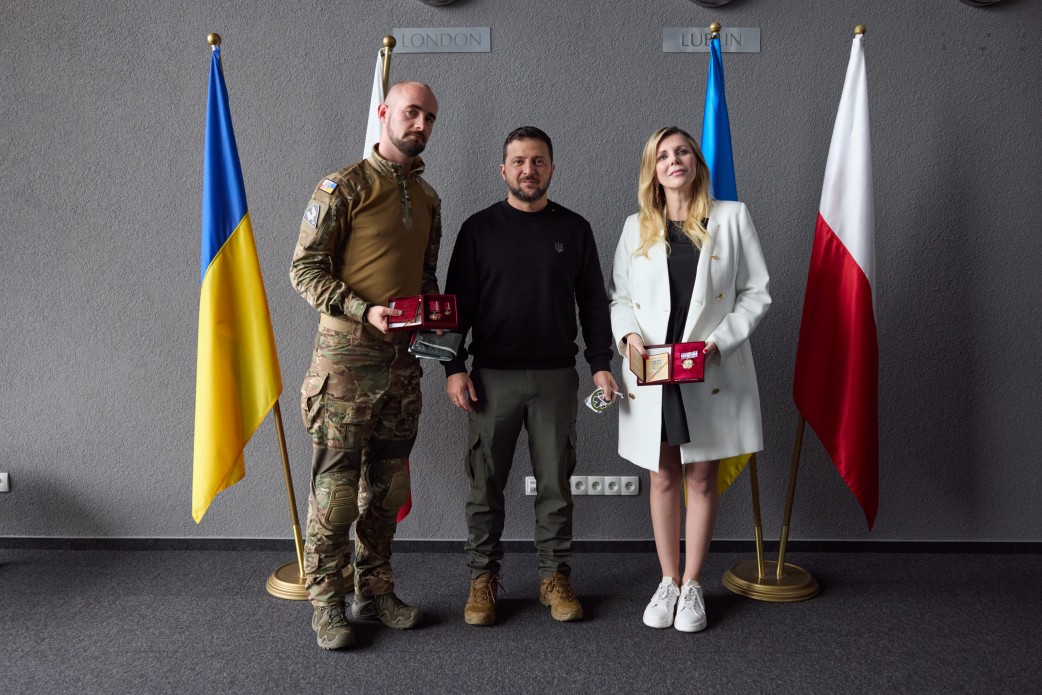
Bianka Zalewska, a Polish journalist at TVN Discovery Poland, has been working in the war zone in Donbas since 2014, where she was seriously injured. As a volunteer, she collected and delivered humanitarian aid to Ukraine. Damian Duda, a medic and rescuer, has gathered a team of medics who have been purchasing the necessary medicines at their own expense and traveling to Ukraine to provide emergency medical care and evacuate soldiers wounded on the front line to a stabilization center.
Read more:
- Poland secretly sends attack helicopters to Ukraine – WSJ
- Beginning his visit to the USA, Polish Prime Minister warned Macron against cooperation with China
- Poland to deliver 200 infantry fighting vehicles Rosomak to Ukraine, Zelenskyy says
- Ukrainians deported from Poland in 1944 recall mass killings, explain paths to historical reconciliation

